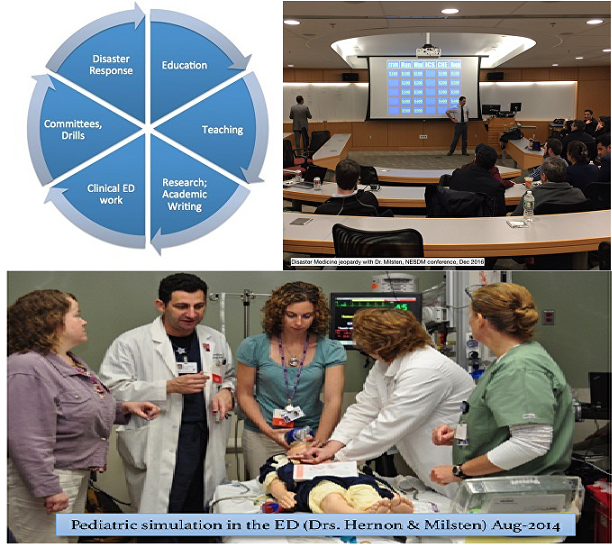Curriculum
The fellows have a variety of ways to learn disaster medicine and emergency management. The central piece of our educational program is our weekly didactic lecture series. The lecture series encompasses all facets of disaster medicine and emergency management and follows along with our curriculum. Please see below for a link to our curriculum. The fellows also get practical experience while working on several hospital and regional EM committees, participating in and running drills, teaching courses for CEEPET as well as other DM faculty and the EM residency. The fellows also receive education through their Masters degree course work and during disaster responses and field work.

Curriculum topics include:
- Nomenclature & basic disaster principles
- IMS (NRF, NIMS, HICS, ICS)
- All-Hazard Medical Management of Incidents and MCIs
- Hospital Emergency Management Planning
- Hospital Joint Commission Preparedness
- Hospital planning: Interface with the Community and Government
- Hospital Exercise Design and Participation
- Alternate Sties of Care
- Recognition, notification, initiation, and data collection
- Resource management & altered standards of care
- Volunteer & Donation management
- Surge capacity & capability
- Specific DM Incidents & Scenarios
- Decon; PPE; Personal Protective Actions
- Mass immunization and Infectious Disease & Control issues
- Hospital Evacuations
- GO- and NGO-sponsored response teams and USR teams
- Recovery from major incidents & Post-traumatic growth
- Mental Health & Stress issues
- Syndromic surveillance & Public Health issues
- Care of Special Needs Populations (IRAA populations)
- Use of Ultrasound
- Role of EMS in Emergency Management
- Role of Guidelines, Laws, Regulation and Public Policy in DM & EM
- Communication skills
- Case studies, including ethical issues and cases
- Education & training
- Development of Effective Leadership Skills
- Critical thinking / situational awareness
- Disaster Research and Epidemiology